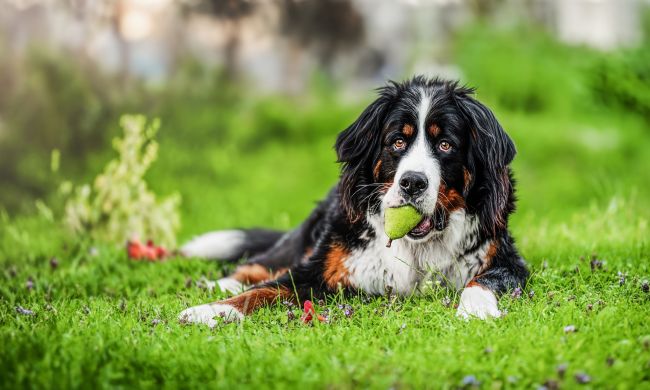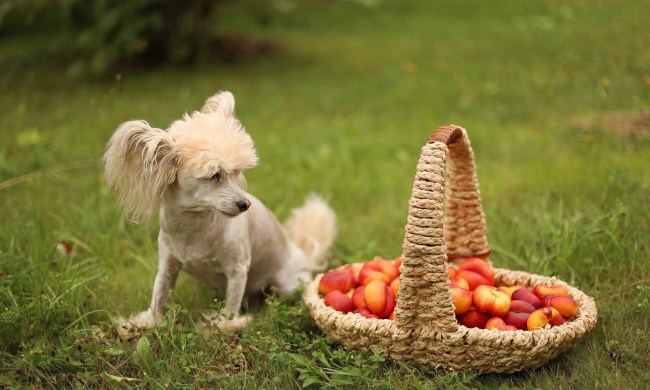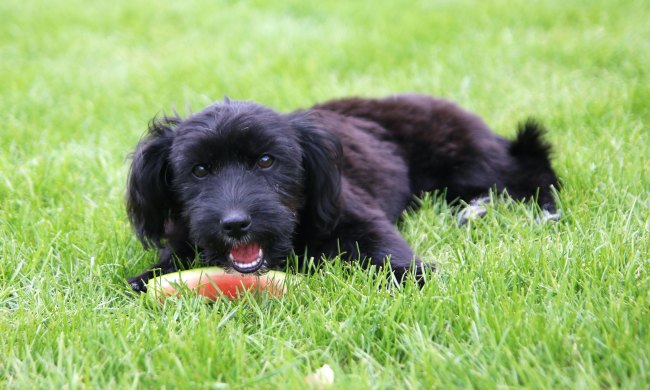No matter what breed your beloved fur baby is, keeping a keen eye on your dog’s diet has many benefits. Not only will you be able to slow down and even prevent issues like weight gain and heart disease, but you’ll also get to know your pup’s likes and dislikes. Believe it or not, some poodles can be picky eaters, so knowing their preferences can be more important than you think!
When it comes to feeding this beautiful breed, it may not be as tricky as you think. Many poodles are perfectly healthy and happy with an over-the-counter “regular” dog food purchased from the pet store, while some others may do better with a more specific nutrient or food type. Whether you go with dry kibble, canned food, or homemade meals for your dog, there’s a little info you need to know about choosing the best poodle food.
What does a poodle eat?
Although you don’t need special poodle food to keep your four-legged friend as healthy as can be, some pet parents choose to take that path. Royal Canin has a line of breed-specific kibble formulas designed to aid with chewing, digestion, and breed-specific ailments. They are available from Chewy and other pet retailers, with no prescription required. For certain dry foods, though, like those meant to aid with weight loss or cardiac health, you will need to visit your vet and ask for a prescription.
As a breed, poodles are prone to obesity. Standard poodles are especially likely to struggle with weight gain, according to Central Texas Veterinary Specialty and Emergency Hospital, so a moderate-calorie diet may be ideal. There are many non-prescription dog foods that help fight obesity, too: Blue Buffalo Life Protection Formula is just one top-rated idea for adult poodles.
This breed is most famous for its fancy, fluffy coat, so it’s no wonder why you’d want to keep your poodle’s fur as healthy as possible. A diet too low in fat could contribute to dry hair and skin, dandruff, dullness, and even skin lesions (via Wendy Brooks, DVM). Luckily, most high-quality pet foods already contain enough essential fatty acids to support a healthy coat. If you feel like your poodle’s food isn’t providing enough nutrients for their skin and fur, you can always add an omega-rich supplement to your pup’s diet.
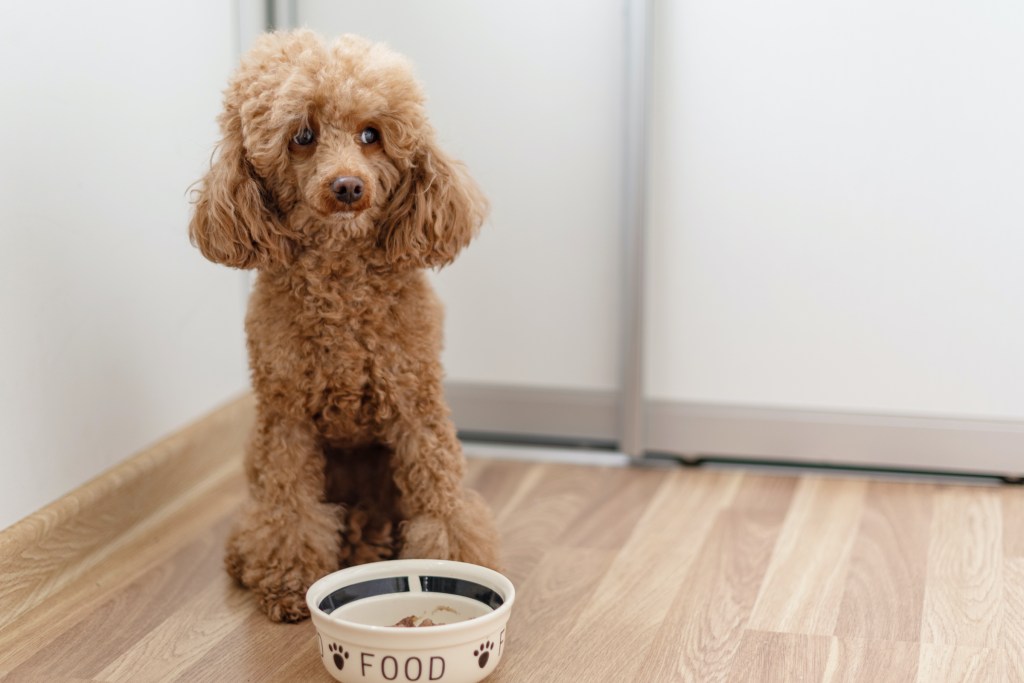
What can a poodle not eat?
Because of this breed’s likelihood of obesity, feeding your poodle rich dog foods may not be a good idea. These foods will be high in proteins and fats, which can be great for puppies, seniors, and dogs who could benefit from gaining a few pounds — but this isn’t ideal for most adult poodles. This is just one more reason to avoid any dog foods that don’t have a statement of nutritional adequacy on the label (via FDA).
When it comes to feeding your dog human foods, be incredibly mindful. Most veterinary experts recommend not sharing table scraps at all, especially since many human foods are toxic to dogs, but we know how difficult it can be to resist your fur baby’s puppy eyes. If you do choose to share human food with your poodle, keep the portions small; people’s food is higher in fat and calories than dog food and can contribute to a number of health problems.
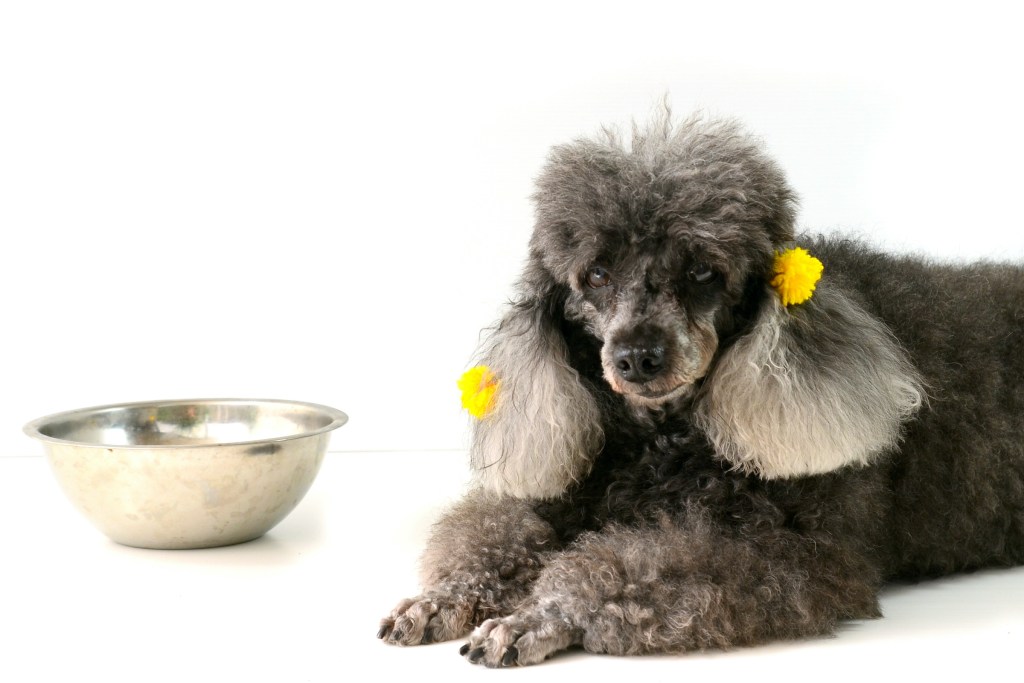
Are poodles picky eaters?
It may be odd to think of a dog as anything other than enthusiastic at mealtimes, but poodles may surprise you. According to a social media survey from pet site Paws and Learn, nearly half of poodle owners — those in the “very picky category” — labeled their pup as either “slightly picky” or “very picky”. In fact, 26 percent of those polled were so concerned about their dog’s picky eating that they worried about its effect on their health. Here’s the good news: the majority of pet parents listed their poodle as a dog who either “eats everything” or has a “good appetite,” so there’s a good chance your pup could be in that category too.
If you have trouble finding foods and flavors your poodle likes, there are a few strategies you can employ. Dr. Jerry Klein, the American Kennel Club’s Chief Veterinary Officer, recommends implementing a stricter mealtime routine. For example, try feeding your dog at the same times every day, and only leave their food out for 20 minutes or so before taking it away. If the problem persists, you should contact your veterinarian for the best guidance.
Regardless of your dog’s dietary habits, learning about the best poodle foods and ingredients can make it easier to keep your pup happy and healthy. You can rest easy at night knowing that your beloved fur baby is getting a nutritionally complete diet, and they can rest easy feeling full and satisfied. Everybody wins!

